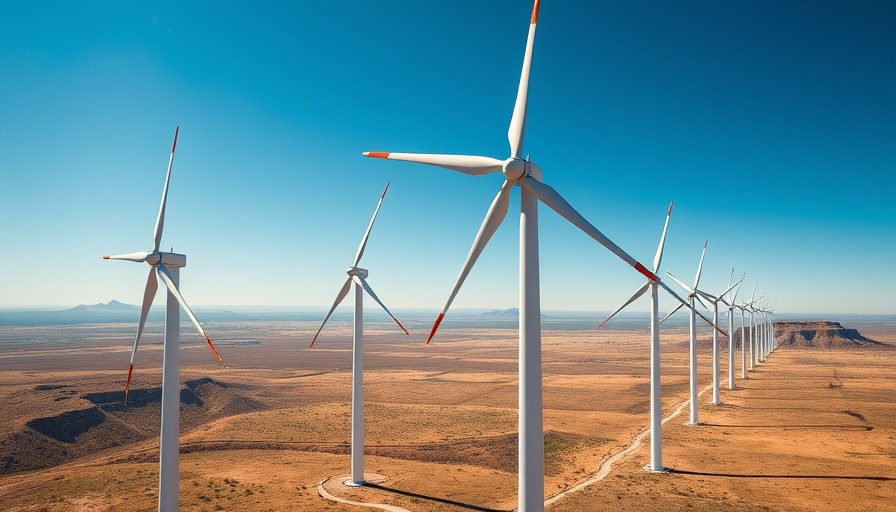
Averi Finance Marks a New Era for Renewable Energy in South Africa
The renewable energy landscape in South Africa is set to undergo a significant transformation with Averi Finance's recent acquisition of a 50% stake in Estonia-based Salika SG. This strategic move aligns with the company's goal to spearhead the development of large-scale renewable energy projects, including a staggering 3.8 GW initiative focused on solar and wind power generation.
The Scope of the Acquisition
Averi Finance, a firm dedicated to investments in emerging markets, will now lead the development of crucial renewable energy infrastructure in South Africa, which includes 3,000 MW of solar power and 850 MW of wind energy. Furthermore, the acquisition includes PTX South Africa, a joint venture committed to expanding the country's Power-to-X (PtX) sector, focused on producing green hydrogen and green ammonia.
The Strategic Importance of Saldanha Port
Central to this initiative is the proposed 500 MWe green hydrogen facility at Saldanha Port, which is currently in its Front-End Engineering Design phase. The facility plans a production capacity of approximately 300,000 tonnes of green ammonia annually. This project, estimated to cost $3 billion, not only marks a watershed moment for South Africa's renewable energy sector but also has implications for the global clean energy transition.
Connecting with Southern Africa's Power Grid
The Salika SG project is not insular; it aims to integrate with the Southern African Power Pool (SAPP) to facilitate electricity trade across borders. This approach enhances the potential for a shared, sustainable future powered by renewable sources, bringing forth economic growth in the region.
A Commitment to Sustainability
The collaboration between Averi Finance and Salika SG underscores a shared vision of eco-friendly initiatives. Gaspar Lino, the founder of Averi Finance, stated, "We are dedicated to investing in innovative, sustainable energy solutions in emerging markets, creating value and lasting social impact for both local communities and global partners." This commitment includes leveraging advanced technologies such as electrolysis to ensure a sustainable production process while minimizing the environmental footprint.
Support from Local and Global Stakeholders
As South Africa strives to align its energy policies with global sustainability goals, the investment from Averi Finance is critical. PTX South Africa, recognized by the World Bank as a key player for zero-carbon energy, stands as a testament to the strategic importance of this green initiative. The project is further galvanized by local government incentives focusing on clean energy transition.
Future Impacts on Economic and Energy Policies
The emergence of projects like these could redefine economic policies across Southern Africa, catalyzing a shift in investment towards renewable energies and meeting the objectives set forth in South Africa's Hydrogen Society Roadmap. With a commitment to alleviating poverty and addressing unemployment through new job opportunities, fossil fuel dependence may soon become a relic of the past.
This acquisition is not merely about energy production; it represents a sense of accountability and transparency that resonates with the values enshrined in the Constitution. Corruption, often highlighted by the pressing need for equitable energy access, falls under the scrutiny of initiatives like these that aim to uplift marginalized communities.
As evidenced by the energy and economic policies poised for discussion in national assemblies, the transition offers a glimpse into a future where new forms of energy redefine power dynamics across Africa.
In conclusion, Averi Finance's strategic acquisition and the development of the Saldanha-based renewable energy projects symbolize a hopeful shift towards cleaner, more accountable energy governance in South Africa. By fostering economic resilience while ensuring environmental sustainability, this initiative may very well anchor South Africa's economic future while driving the country’s behavior towards responsible energy management.
Join the Transition towards Sustainable Energy!
For professionals looking to support and engage in the renewable energy transformation in South Africa, your participation is crucial. Align your strategies with innovations in green technologies, support local economies, and advocate for sustainable policies. Let's build a brighter future together!
 Add Row
Add Row  Add
Add 


Write A Comment